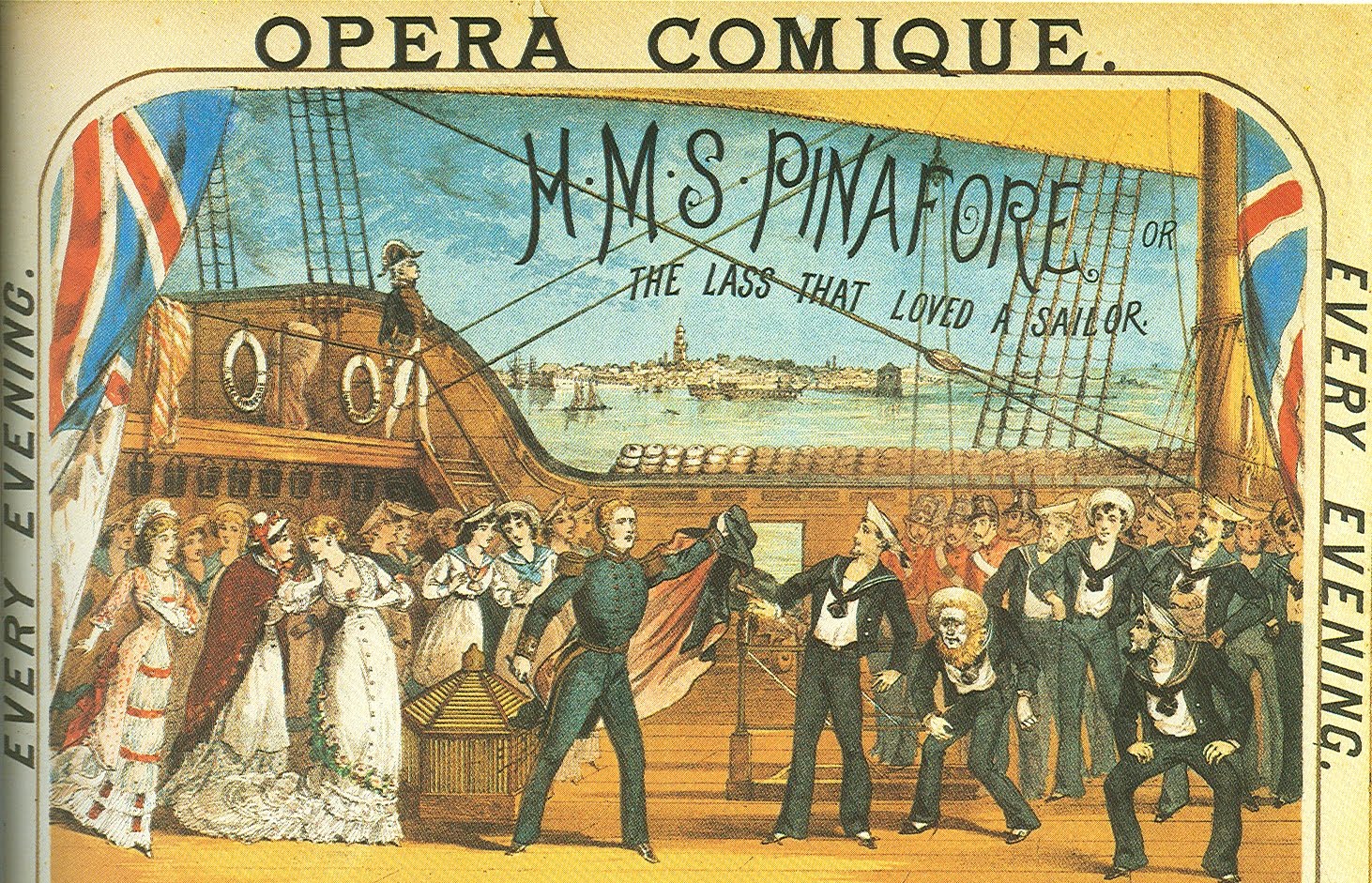
On 30th November 2015, the Leicestershire and Rutland Lodge of Installed Masters No. 7896, which meets at Freemasons’s Hall, Leicester, received a lecture on the ‘Masonic Echoes in Gilbert and Sullivan’ by W Bro David Hughes.
W Bro David is someone rather well qualified to deliver it as not only is he a well known masonic researcher and current Master of the Lodge of Research No. 2429, but he has a long ‘performing pedigree’ in the Savoy Operas having commenced his on-stage life with them in 1961 at his school in Dudley. He subsequently went on to be a leading member of both the Liverpool and Cambridge University G and S Societies, and later becoming a regular stage director of the Operas in Leicester.
W Bro Hughes began by outlining the masonic careers of both Gilbert and Sullivan. Gilbert originally joined a masonic lodge in Scotland while he was a volunteer officer in Aberdeen, while Sullivan was initiated most appropriately into the Lodge of Harmony No. 255. Both were subsequently exalted into the Royal Arch and perfected in the Ancient and Accepted Rite.
Sadly, the masonic influence on the works of “G and S” have been neglected by their biographers, though most recently the tide seems to have turned in this respect, especially with regard to Sullivan where it is increasingly accepted that his membership of the Craft had an influence on all his output, and certainly assisted in moulding his character and conduct. It must also be remembered that Sullivan was a unique figure in English Freemasonry, being the only holder of Grand Rank as a Rosette appointment – but he did have friends in very high places in the person of the MW Grand Master His Royal Highness The Prince of Wales.
W Bro Hughes demonstrated that there are explicit masonic references in The Grand Duke of 1896, where one character states ‘we are all tiled here’. Then in the Song of the Sausage Roll, reference is made to the giving and receiving of signs whereby one brother learns he may fully trust another.
However, it is rather through Gilbert’s use of Topsy-Turvey arguments that the allusions become more plain. Gilbert used a dramatic method whereby everything is turned on its head so that it becomes its own opposite. Thus good is bad, bad is good, day is night and night is day, vice is virtue and virtue is vice and so on. By this means Gilbert constructs his satires. In The Grand Duke the Masonic satire hinges on a touring company of actors planning to overthrow a minor German prince. Thus Freemasonry which is most certainly not about the seizure of political power and the advancement of the private interests of its members is turned on its head to become exactly the opposite of itself.
Similarly in Ruddigore of 1887, masonic ritual is parodied both in words and music in telling the tale of a man who is condemned by an ancient curse to commit a crime each day or perish in agony which ‘gets worse by degrees’, inflicted on him by his ghostly ancestors who form a mock lodge for the purpose of making him make, not a daily advancement in masonic knowledge, but a daily descent into a life of crime and wrongdoing. Once again our beneficial and moral order is turned on its head to become its exact opposite for the purposes of satire.
At the close of the meeting, the Master of the lodge, W Bro Ian Johnson, thanked W Bro Hughes for an enlightening and entertaining talk.
